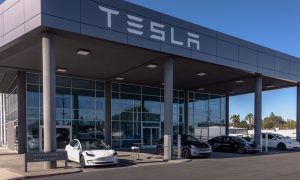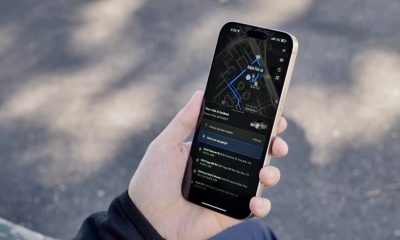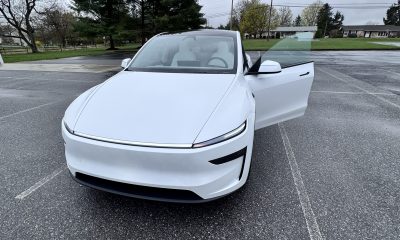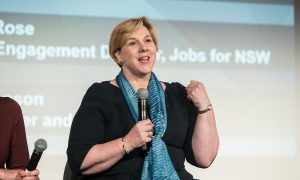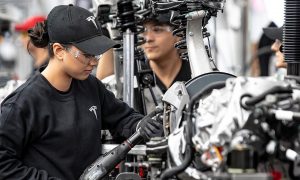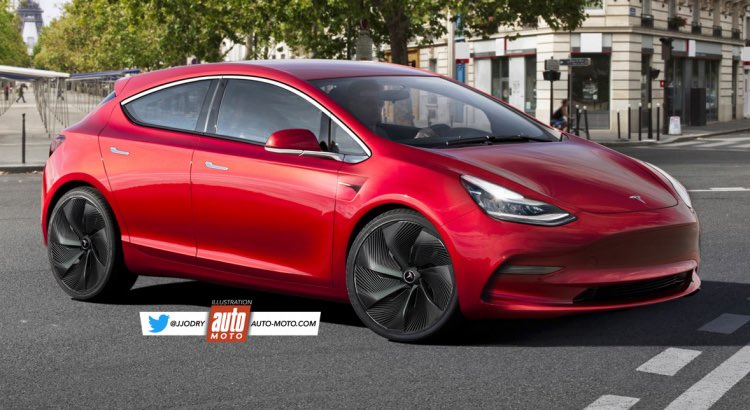

News
Tesla $25K compact electric car prototype has been completed: rumor
It appears that Tesla China is making good progress in its development of the highly-anticipated $25k compact electric car. If recent rumors from China are any indication, it appears that the upcoming affordable EV is still planned for trial production for the end of 2021.
The update about Tesla China’s newest electric vehicle was shared by noted automotive segment leaker 不是郑小康, who has proven to be accurate in the past. According to the industry leaker, the prototype for Tesla’s $25K car has already been completed, and most suppliers for the vehicle’s production have already been lined up.
With this in mind, it would not be surprising if Tesla China’s affordable electric car actually enters its trial production phase by the end of the year. It should be noted, of course, that these updates are considered rumors for now, despite them being shared by a prolific source that has proven reliable to date.
The development of the $25K Tesla from China has pretty much been kept secret, though previous filings and interviews with company executives have provided some hints at the development of the upcoming vehicle. Back in January, for example, local media outlet Sina Motors reported that Tesla had already started the environmental impact assessment for the $25K car.
The China-based publication reported back then that the first batch of the $25K Tesla would likely be testing at the latter half of the year. A prototype being completed in the third quarter does seem to go in line with these reports. This bodes well for the EV maker, especially since Tesla China President Tom Zhu confirmed back in February that the highly-anticipated vehicle would be made available worldwide.
“The center is in Tesla Gigafactory Shanghai, where we are now. We are now building our China R&D center right here. This R&D center is also the first Tesla R&D center outside the United States…In the future, we want to design, develop and produce an original model in China, manufactured here and sold to the whole world. This R&D center is the starting point of the goal,” Zhu said.
Don’t hesitate to contact us with news tips. Just send a message to tips@teslarati.com to give us a heads up.
News
T-Mobile’s Starlink cellular doubles as free 5G trial for rival users
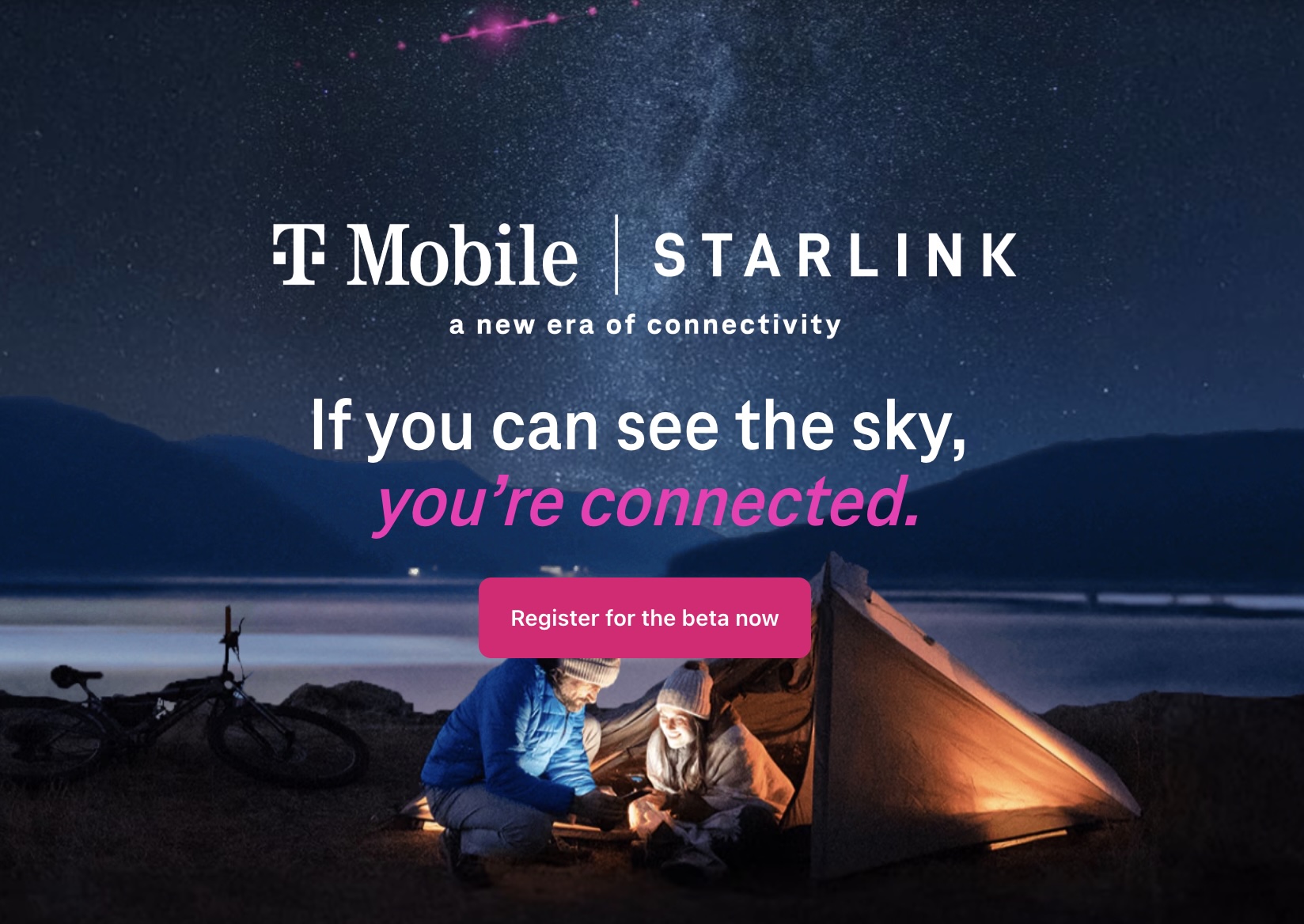
T-Mobile’s Starlink cellular is set to deliver satellite connectivity to users on rival carriers. The Starlink cellular beta program could double as a free trial for T-Mobile’s 5G network, blending space-based innovation with a strategic push to attract new customers. T-Mobile’s Starlink cellular service will launch soon, aiming to showcase both Starlink’s capabilities and T-Mobile’s terrestrial network.
“The wait is almost over,” T-Mobile announced in a Wednesday email to those who signed up for free beta access to the cellular Starlink service. “Our phone partners have been hustling to get more phones satellite-optimized, and in just a couple weeks, you’ll be invited to the beta.”
The Starlink cellular program includes “50GB of high-speed data and unlimited texts,” offering a robust test of T-Mobile’s 5G network alongside Starlink’s satellite connectivity. This package mirrors T-Mobile’s existing three-month free trial, which provides 50GB of premium mobile data via eSIM, allowing users to try T-Mobile without switching from their current provider.
Starlink cellular’s availability to rival carrier users via eSIM is a key draw, enabling seamless access to T-Mobile’s network and Starlink’s satellite service. T-Mobile sweetens the deal with perks like “$5 movie tickets, 25% off concert tickets, travel discounts, and T-Mobile Tuesdays for free stuff and great perks every week.” These incentives underscore T-Mobile’s strategy to convert beta testers into full-time customers.
Last week, T-Mobile reduced Starlink cellular’s price to $10 per month for both its customers and those on rival carriers, enhancing affordability. The company’s exclusive U.S. partnership with SpaceX gives it a head start in satellite connectivity. Meanwhile, competitors AT&T and Verizon, collaborating with AST SpaceMobile, may lag by a year or two due to fewer satellites.
By offering rival carrier users a free trial of its 5G network through the Starlink cellular beta program, T-Mobile positions itself as a leader in terrestrial and satellite connectivity. The initiative highlights the potential of SpaceX’s Starlink and leverages T-Mobile’s network strengths to capture a broader market, setting the stage for a new era of hybrid connectivity.
Elon Musk
Elon Musk’s OpenAI lawsuit clears hurdle as trial looms
Elon Musk says OpenAI betrayed its nonprofit mission. Who should steer AI’s future—visionaries or shareholders?

Elon Musk’s lawsuit against OpenAI and CEO Sam Altman has cleared a major hurdle. Judge Yvonne Gonzalez Rogers of the Northern District of California recently rejected OpenAI’s bid to dismiss the case, setting the stage for a high-stakes trial over the AI giant’s for-profit conversion. The ruling intensifies the rivalry between two tech titans vying for dominance in artificial intelligence (AI).
Elon Musk is an OpenAI co-founder who provided significant early funding. In the lawsuit, Musk alleged that OpenAI’s shift from a non-profit to a for-profit entity violates contractual obligations and constitutes fraud. Last year, The lawsuit was filed against Altman, OpenAI, and its key investor, Microsoft, aiming to block the conversion to a for-profit company.
In March, a ruling denied Musk’s request for a preliminary injunction. However, Judge Rogers recently expedited the trial and set it for March 2026. On Thursday, she dismissed some claims but upheld key allegations, allowing the case to proceed.
“Musk adequately alleges that the defendants promised to maintain OpenAI’s non-profit status and structure in order to obtain his contributions and that they intended to do so in order to obtain the capital needed to create a for-profit venture to enrich themselves,” Gonzalez Rogers wrote.
She also rejected OpenAI’s attempt to dismiss Musk’s claim of an implied contract. “Although there is no express contract, Musk adequately pleads in the alternative that there is an implied-in-fact contract,” the California judge noted.
“In the world of litigation, this is a big win,” said a person close to Musk, highlighting the retention of “big-ticket items” like the fraud allegation.
OpenAI, which can appeal the decision, countersued Musk last month. It claims Musk’s lawsuit is a “bad-faith” effort to hinder its progress and benefit his AI venture, xAI.
OpenAI’s push to become a for-profit public benefit corporation aims to streamline fundraising but has sparked a backlash from AI experts like Geoffrey Hinton. Former employees warn that OpenAI’s change of direction could prioritize profits over its mission to advance AI for humanity’s benefit.
Financial Times attempted to contact OpenAI and its biggest investor, Microsoft. OpenAI declined to comment, and Microsoft did not respond.
As Elon Musk and OpenAI head toward trial, the outcome could reshape the AI landscape, with implications for governance, innovation, and the balance between profit and public good.
News
Neuralink device gets FDA recognition for speech restoration
Neuralink device gets FDA’s ‘breakthrough’ designation. With Link, a man with ALS now types, navigates, and speaks.
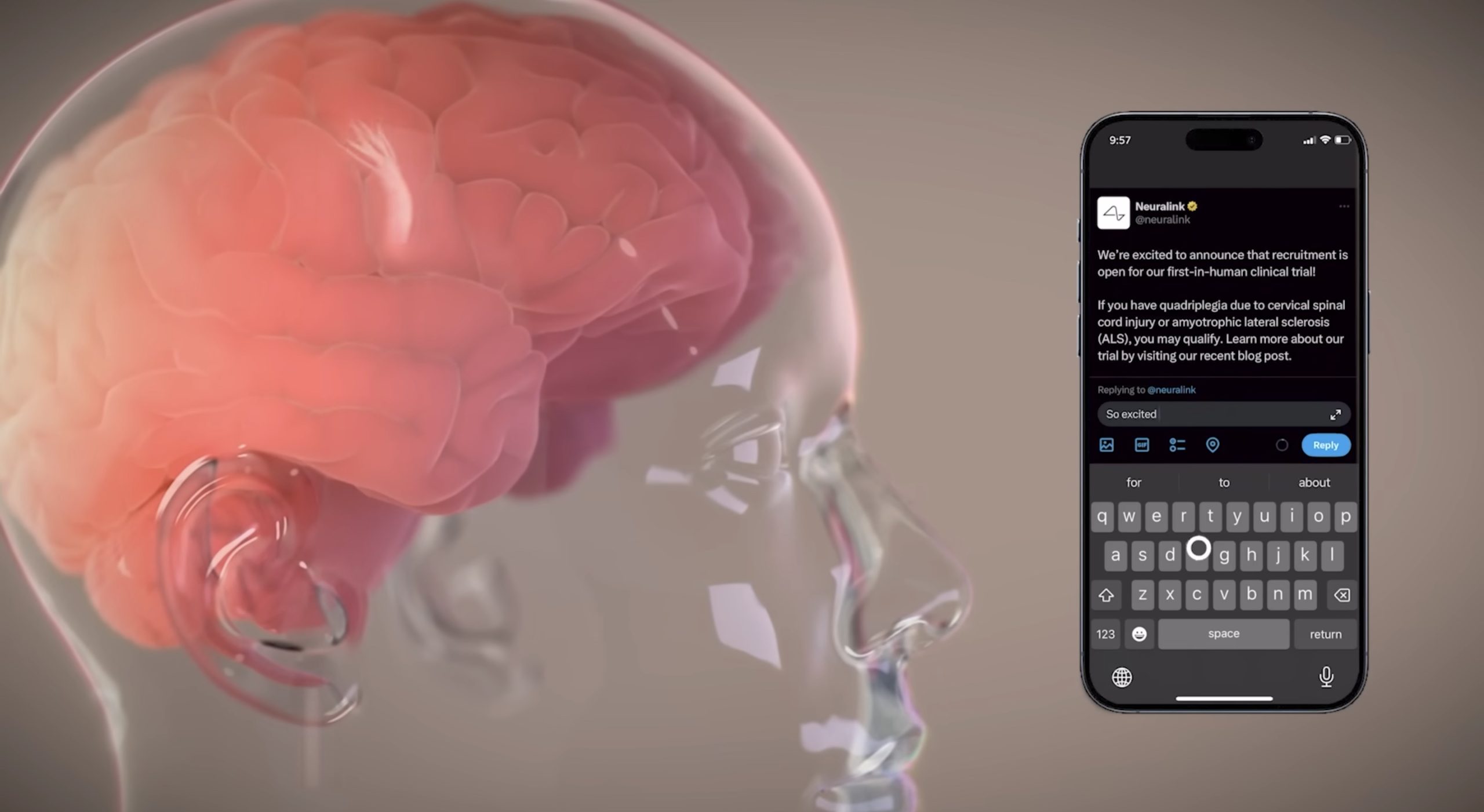
Neuralink’s brain-computer interface (BCI) device, Link, has secured the U.S. Food and Drug Administration’s (FDA) “breakthrough” designation for restoring communication in patients with severe speech impairment. This milestone advances Elon Musk’s vision of merging human cognition with technology.
The Link device targets individuals with neurological conditions like Amyotrophic Lateral Sclerosis (ALS), stroke, spinal cord injury, cerebral palsy, and multiple sclerosis. In a recent X video, Neuralink’s third PRIME Study participant, Bradford G. Smith, who lives with ALS, showcased the device’s potential.
Using Link, Smith regained his ability to communicate, leveraging AI to narrate with a synthesized version of his former voice. “I am typing this with my brain,” Smith wrote. “It is my primary communication.”
Smith edited the X video with the help of Link. In the video, he demonstrated how Link enabled him to control a computer cursor to communicate, highlighting the BCI’s ability to interface with external devices.
Before Link, Smith relied on an eye tracker, which limited communication in bright settings and restricted his mobility. Now, Neuralink’s implant enables him to connect more freely. His experience shows Neuralink’s progress in empowering paralyzed individuals and those with neurodegenerative diseases through revolutionary assistive solutions.
The company is also exploring applications for vision restoration and other health challenges. In 2024, Neuralink received the FDA’s ‘breakthrough device’ tag for its Blindsight device. Elon Musk explained that Blindsight would help people who have lost both eyes and function in their optic nerve to see. However, Neuralink’s current focus remains on mobility and communication.
Neuralink recently expanded its patient registry to include participants worldwide. The PRIME Study, likely the primary target for new registrants, tests Link’s base capabilities. Meanwhile, the CONVOY study explores Link’s ability to control robotic devices, like an assistive robotic arm. This broader access underscores Neuralink’s commitment to scaling its trials.
The company is reportedly preparing for a $500 million funding round, with preliminary talks valuing Neuralink at $8.5 billion pre-money and potentially $9 billion post-money, though terms remain fluid. Neuralink has not commented on the speculation about funding.
By earning FDA breakthrough status, Neuralink positions Link as a transformative tool for those with severe speech impairments. Smith’s experience illustrates its potential to restore independence, while ongoing trials and funding efforts signal the company’s ambition to redefine human-technology interaction for neurological conditions and beyond.
-
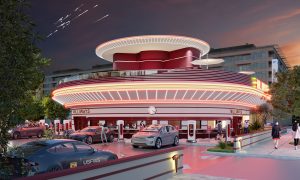
 News2 weeks ago
News2 weeks agoTesla’s Hollywood Diner is finally getting close to opening
-

 Elon Musk2 weeks ago
Elon Musk2 weeks agoTesla doubles down on Robotaxi launch date, putting a big bet on its timeline
-
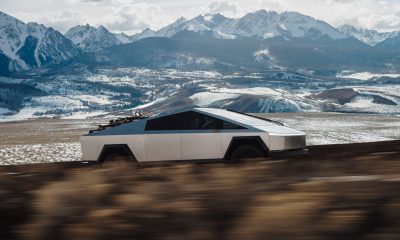
 News1 week ago
News1 week agoTesla is trying to make a statement with its Q2 delivery numbers
-
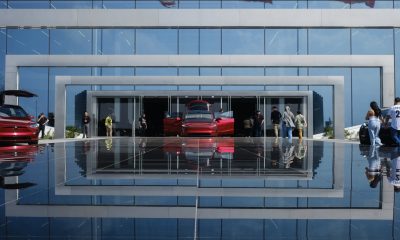
 Investor's Corner1 week ago
Investor's Corner1 week agoLIVE BLOG: Tesla (TSLA) Q1 2025 Company Update and earnings call
-
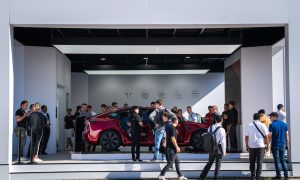
 News5 days ago
News5 days agoNY Democrats are taking aim at Tesla direct sales licenses in New York
-
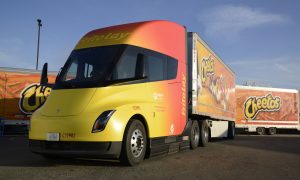
 Elon Musk2 weeks ago
Elon Musk2 weeks agoTesla Semi fleet from Frito-Lay gets more charging at Bakersfield factory
-
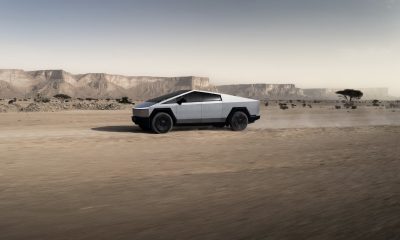
 Elon Musk2 weeks ago
Elon Musk2 weeks agoTesla offers new discounts on Cybertruck inventory
-
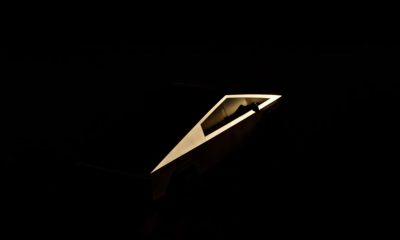
 Investor's Corner1 week ago
Investor's Corner1 week agoTesla (TSLA) releases first quarter 2025 earnings results


